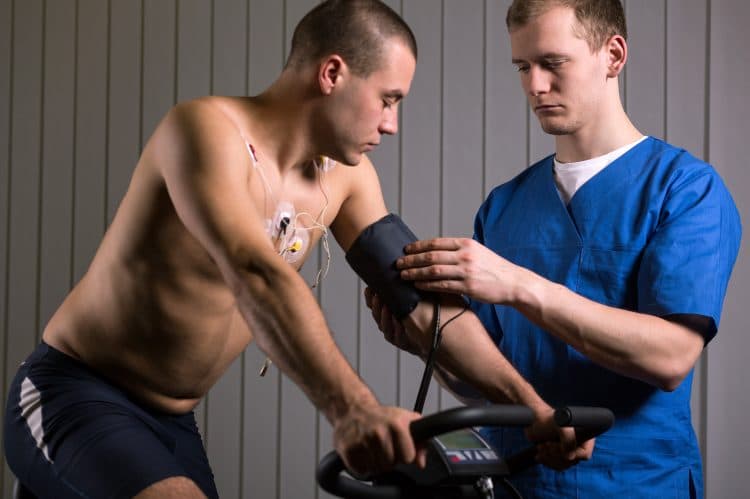What is Water Fasting?
Water-only fasting is a restrictive diet where you do not eat or drink anything besides water. It is also defined as a zero-calorie diet, as you do not consume any calories while fasting [1]. Water-only fasting should not be confused with a liquid diet, as other liquids that contain calories are allowed to be consumed in a liquid diet.
While it is popular in diet culture to do a water-only fast for weight loss, many potential risks can arise from following a zero-calorie diet. Many other benefits have been found from water-only fasting when fasting under medical supervision.
How to Do a Water-Only Fast
Doing a water-only fast is simple. You strictly drink only water for the duration of your fast.

There are no standard guidelines for how long you should do a water-only fast. The general guideline is not to do a water-only fast for longer than 72 hours. Any longer and risks may outway any potential benefits. Water-only fasting for a duration longer than 72 hours should be completed under medical supervision.
During a water-only fast, you can drink as much water as you need to remain hydrated. There are no restrictions on water intake. The current recommendation is for individuals to drink two to three liters of water every day while water-only fasting [1].
You can drink regular filtered water when fasting. One study recommends that you drink mineralized water [1]. Mineralized water would help your body maintain mineral balance while fasting and avoid mineral imbalance [1].
While completing a water-only fast is a simple task, ending a water-only fast involves more careful consideration. When ending a water-only fast, it is important not to scarf down a large, heavy meal when ending your fast. This could place you at risk for refeeding syndrome. Instead, slowly transition your body back to eating to allow your body to adjust. You could start with bone broth or juice, then move on to a small light meal. Then increase your food intake from then on until your body feels adjusted.
Water Fasting Benefits
Weight Loss
Weight loss is the most noticeable change that people experience due to water-only fasting [1].
Two reasons can correlate with weight loss as a result of water-only fasting, the decrease in caloric intake and being in a state of ketosis.

The USDA Dietary Guidelines for Americans recommends that females consume between 1,800 to 2,400 calories per day and males consume between 2,400 to 3,000 calories per day [2]. You can use a calorie calculator to calculate how many calories you need to eat each day.
Any day that you reduce their caloric intake by approximately 500 calories, you can experience weight loss due to the caloric deficit [3, 7].
Your body can enter into a state of ketosis 12 to 36 hours after beginning a fast. Being in a state of ketosis means your body starts burning fat for energy instead of glucose [4, 5]. When your body burns fat for energy, it leads to fat loss [5].
Many studies found that water-only fasting for five to eleven days significantly reduced weight and BMI [1, 8, 9, 12].
One study showed that participants lost an average of 4.59-kilogram reduction in body weight and a 9.85-centimeter reduction in waist circumference after completing a water-only fast for five days [8].
Another study found that weight loss averaged 0.9 kg/day during the first week of a water-only fast [12]. This rate would slowly decrease by the third week of fasting to 0.3 kg/day [12].
Many studies reported that after participants completed a refeeding period after the fasting period, their weight and waist circumference were still lower than when they began [8, 9, 12]. This means that water-only fasting may be an approach to sustainable weight loss.
Maintained Protein Balance
Since water-only fasting is only completed for a short duration of time, there is no concern for muscle loss. The metabolic changes that occur when fasting prevent muscle breakdown as the body utilizes fat for energy [13].
Multiple studies found that protein reserves were maintained when participants fasted [1, 12, 13].
Blood Pressure Regulation
Many studies have concluded that water-only fasting for 5 to 11 days can significantly reduce blood pressure [ 7, 8, 9, 10, 11, 12].
One study found that after 11 days of water-only fasting, 90% of participants experienced a significant reduction in their systolic and diastolic blood pressure [7]. The average reduction measured was 37/13 mm Hg [7]. Those with hypertension experienced an even greater reduction of 60/12 mm Hg [7]. Every participant who entered the study while taking medication was able to discontinue taking their medication [7].
Under medical supervision, water-only fasting may be an effective and safe means of regulating blood pressure and reversing hypertension.

Increased Immunity
Water-only fasting may increase immunity.
One study specifically found that when participants fasted for eight days, they experienced a reduction in perceived stress [1]. Perceived stress, also known as acute stress, can impair immune response [1]. The level of stress reduction experienced can have a therapeutic impact on the body, activate the cell regeneration, and produce a strong immune response [1].
Blood Sugar Management
Water-only fasting may also improve blood sugar regulation and be an effective treatment for insulin resistance [8, 12].
Water Fasting Risks
Mineral Imbalance
Mineral imbalance is a concern when water-only fasting. During a prolonged period of fasting, minerals become depleted [1, 13].
Your body relies on minerals to balance water within your body and balance pH levels, move waste out of cells and bring nutrients into cells, and support body functions such as nerve, muscle, and heart functions [17].
Minerals, such as sodium, calcium, potassium, phosphate, magnesium, and chloride, are found in foods you eat [17]. When fasting, you no longer consume food, and these minerals become depleted [17].
Drinking mineral water may help avoid mineral imbalance when water-only fasting [1].
When your body has a mineral imbalance, you may experience nausea, headaches, fatigue, and confusion [1].
Refeeding Syndrome
The n risk associated with water-only fasting does not occur during the fasting period but during refeeding (when you begin eating again). Anyone who fasts for over five days is at risk of developing refeeding issues [13].
Refeeding syndrome is a potentially fatal condition that can result from consuming too much food too quickly after an extended period of fasting from food [13].
During an extended period of fasting (over five days), intracellular minerals become depleted [13]. When fasting, the body then switches from using glucose as its energy source to fats [13]. Insulin usage slows down as it is not needed to convert glucose into energy [13]. Electrolytes are used to help convert glucose into energy, but not fats. Since electrolytes are not being consumed during a water-only fast, they become depleted quickly.
When food is eaten after a prolonged duration of fasting, the body quickly switches back to converting glucose into energy [13]. This drastic metabolic shift causes a spike in insulin secretion because there are no electrolytes to maintain the function [13].
Signs and symptoms of refeeding syndrome include:
- Weakness
- Confusion
- Difficulty breathing
- High blood pressure
- Seizures
- Heart failure
- Coma
- And, even death
After fasting, it is highly important to reintroduce food at a slow pace, and to consume light, low-calorie foods. This will allow your body time to complete the metabolic shift without going into shock.
Elevated Blood Sugar
Many studies found that blood sugar spiked when refeeding, even if refeeding syndrome did not occur. The metabolic changes that occur when refeeding could result in hypoglycemia [1, 12].

Kidney Function
Kidney function can also be negatively affected by prolonged water-only fasting as it can cause a decrease in renal function and increased levels of uric acid in the blood [1, 8, 9].
The most common effect of impaired kidney function is hyperuricemia, which means there is an elevated level of uric acid in the blood [1, 9]. Hyperuricemia can lead to the development of gout or kidney stones.
Water-only fasting is not recommended for individuals who have existing impaired renal function or gout [8].
Eating Disorders
Fasting may also increase the risk of developing eating disorders because fasting can increase a preoccupation with food avoidance and body weight [14, 15].
Water-only fasting is a very restrictive fast that can place people at risk for anorexia [14, 15].
Due to restrictions, water-only fasting may also place people at risk of binging upon refeeding (which could cause refeeding syndrome) or beginning a binge-purge cycle [13, 14, 15].
Those who have been diagnosed with eating disorders or those who are at risk for developing an eating disorder should avoid water-only fasting.
Subjective Symptoms
Some people may experience symptoms during water-only fasting that may not lead to serious risks.
Subjective symptoms include [1, 9, 10, 11]:
- Dehydration
- Hunger
- Headaches
- Nausea
- Vomiting
- Irritability
- Kidney pain (back pain)
- Foul taste in the mouth
- Insomnia
- Fatigue
Other Cautions
There is a great level of concern for certain individuals if they participate in water-only fasting. Water-only fasting should be avoided by individuals with poor renal functioning or eating disorders and those who are underweight, pregnant, breastfeeding, or taking medications [16].
Learn everything about fasting
- 11 Best Intermittent Fasting Books in 2023 (Review and Ranked)
- 7 Day Water Fast: Your Journey to Rejuvenation and Wellness
- 6 Intermittent Fasting Juice Recipes: Sip Your Way to Success with These Tasty Recipes!
- Eat Stop Eat Intermittent Fasting Decoded: Master Your Metabolism & Lose Weight
- Intermittent Fasting for Weight Loss in Men — The Ultimate Guide
- Fat Loss vs. Weight Loss — Explained!
- Fruit Fasting: The Sweet Path to Wellness
- Foods To Avoid While Intermittent Fasting
FAQs
How long can you do a water-only fast?
A water-only fast should only be completed for a maximum of 3 days unless medically supervised.
Can you lose weight by fasting and only drinking water?
Yes, you can lose weight through water-only fasting. While you are fasting, you are in a caloric deficit.
Is it still considered fasting if you drink water?
Fasting means that you do not eat or drink anything that contains calories for over 12 hours. Drinking water does not end your fast.
Wrapping Up
While water-only fasting has some scientifically backed benefits, such as blood pressure regulation and weight loss, many risks can result from water-only fasting. Water-only fasting should not be completed for over 72 hours without medical supervision. Medical supervision is necessary as medical professionals can monitor mineral levels in blood and urine while you fast to ensure that the fast is not causing harm. Many effects of water-only fasting are not visible until we see symptoms, and medical professionals may be able to detect issues before symptoms are visible.
If any unfavorable symptoms occur while fasting, it would be important to end your fast and seek medical advice.
References
- Ogłodek, E., & Pilis, Prof., W. (2021). Is Water-Only Fasting Safe? Global Advances in Health and Medicine, 10, 216495612110311. https://doi.org/10.1177/21649561211031178
- U.S. Department of Agriculture and U.S. Department of Health and Human Services. Dietary Guidelines for Americans, 2020-2025. 9th Edition.
- Koliaki, C., Spinos, T., Spinou, A., Brinia, A. E., Mitsopoulou, D., & Katsilambros, N. (2018). Defining the Optimal Dietary Approach for Safe, Effective and Sustainable Weight Loss in Overweight and Obese Adults. Healthcare, 6(3), 73. https://doi.org/10.3390/healthcare6030073
- Anton, S. D., Moehl, K., Donahoo, W. T., Marosi, K., Lee, S. A., Mainous, A. G., Leeuwenburgh, C., & Mattson, M. P. (2017). Flipping the Metabolic Switch: Understanding and Applying the Health Benefits of Fasting. Obesity, 26(2), 254–268. https://doi.org/10.1002/oby.22065
- Collier, R. (2013). Intermittent fasting: the science of going without. Canadian Medical Association Journal, 185(9), E363–E364. https://doi.org/10.1503/cmaj.109-4451
- Redman, L. M., & Ravussin, E. (2011). Caloric Restriction in Humans: Impact on Physiological, Psychological, and Behavioral Outcomes. Antioxidants & Redox Signaling, 14(2), 275–287. https://doi.org/10.1089/ars.2010.3253
- Goldhamer, A., Lisle, D., Parpia, B., Anderson, S. V., & Campbell, T. (2001). Medically supervised water-only fasting in the treatment of hypertension. Journal of Manipulative and Physiological Therapeutics, 24(5), 335–339. https://doi.org/10.1067/mmt.2001.115263
- Jiang, Y., Yang, X., Dong, C., Lu, Y., Yin, H., Xiao, B., Yang, X., Chen, W., Cheng, W., Tian, H., Guo, L., Hu, X., Fang, H., Chen, W., Li, Z., Zhou, W., Sun, W., Guo, X., Li, S., . . . Jia, L. (2021). Five-day water-only fasting decreased metabolic-syndrome risk factors and increased anti-aging biomarkers without toxicity in a clinical trial of normal-weight individuals. Clinical and Translational Medicine, 11(8). https://doi.org/10.1002/ctm2.502
- Mojto, V., Gvozdjakova, A., Kucharska, J., Rausova, Z., Vancova, O., & Valuch, J. (2018). Effects of complete water fasting and regeneration diet on kidney function, oxidative stress and antioxidants. Bratislava Medical Journal, 119(02), 107–111. https://doi.org/10.4149/bll_2018_020
- Gustafson, C. (2014). Alan Goldhamer, dc: Water Fasting-The Clinical Effectiveness of Rebooting Your Body. Integrative medicine (Encinitas, Calif.), 13(3), 52–57.
- Finnell, J. S., Saul, B. C., Goldhamer, A. C., & Myers, T. R. (2018). Is fasting safe? A chart review of adverse events during medically supervised, water-only fasting. BMC Complementary and Alternative Medicine, 18(1). https://doi.org/10.1186/s12906-018-2136-6
- Scharf, E., Zeiler, E., Ncube, M., Kolbe, P., Hwang, S. Y., Goldhamer, A., & Myers, T. R. (2022). The Effects of Prolonged Water-Only Fasting and Refeeding on Markers of Cardiometabolic Risk. Nutrients, 14(6), 1183. https://doi.org/10.3390/nu14061183
- Mehanna, H. M., Moledina, J., & Travis, J. (2008). Refeeding syndrome: what it is, and how to prevent and treat it. BMJ, 336(7659), 1495–1498. https://doi.org/10.1136/bmj.a301
- Stice, E., Davis, K., Miller, N. P., & Marti, C. N. (2008). Fasting increases risk for onset of binge eating and bulimic pathology: A 5-year prospective study. Journal of Abnormal Psychology, 117(4), 941–946. https://doi.org/10.1037/a0013644
- National Institute of Mental Health. (n.d.). Eating Disorders. National Institute of Mental Health (NIMH). https://www.nimh.nih.gov/health/topics/eating-disorders
- Mayo Clinic. (2020, December 4). Fasting diet: Can it improve my heart health? https://www.mayoclinic.org/diseases-conditions/heart-disease/expert-answers/fasting-diet/faq-20058334
- MedlinePlus. (n.d.). Fluid and Electrolyte Balance. https://medlineplus.gov/fluidandelectrolytebalance.html


